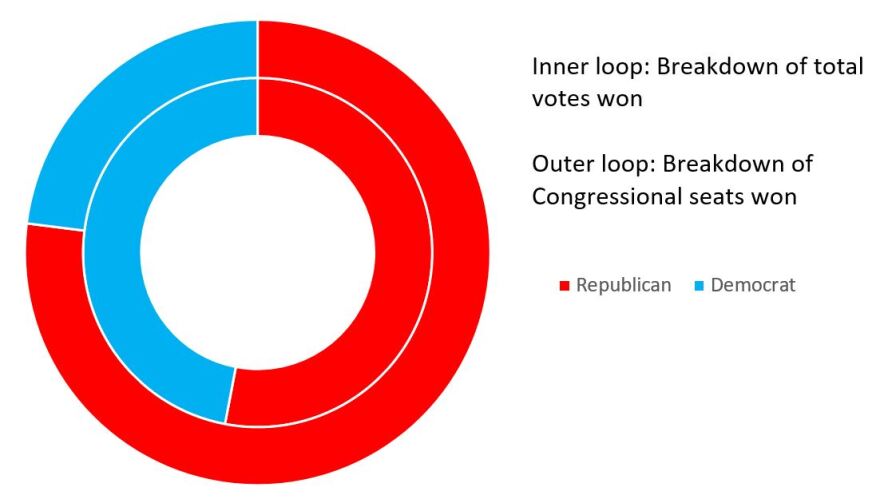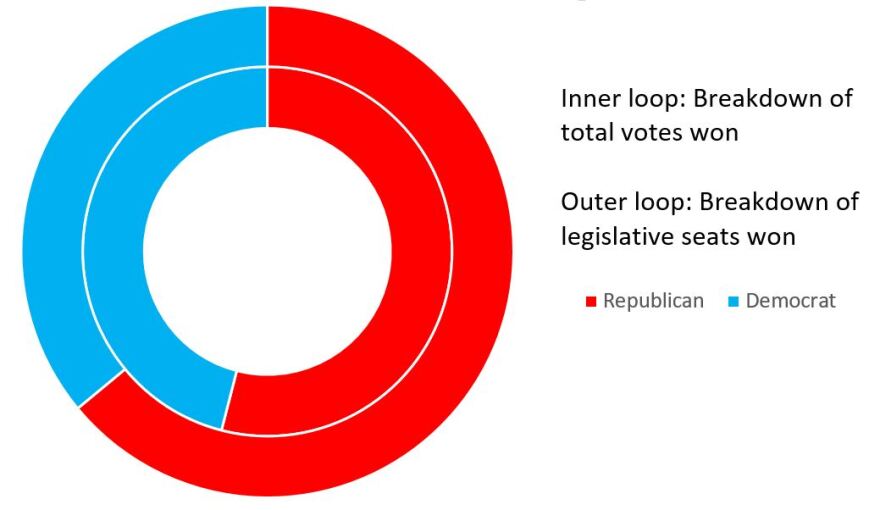In the North Carolina General Assembly, the GOP retained veto-proof majorities in both chambers thanks at least in part to gerrymandered legislative districts.
Around the state, Republicans won 109 of 170 races in the House and Senate combined. That means the party controls 64 percent of the legislative seats, including the three-fifths majority in both chambers. In North Carolina government, the legislature can override a governor’s veto with a three-fifths majority, meaning even if Roy Cooper, a Democrat, goes on to clinch the state’s top position, Republicans would be able to join together to override any veto.
Looking at vote totals, however, shows that Republicans were able to reach the supermajority with the help of carefully drawn districts. While the GOP won 64 percent of seats, it won just 54 percent of the total votes in those 170 races, according to an analysis of preliminary results.
This is possible in part due to clustering districts. In several close races, Republicans won by a tight margin, while those races won by Democrats were often taken in landslides, the definition of a gerrymander.
Consider the example of three equally sized districts, each with 100 voters. If one party wins two districts each by a 51 to 49 margin, but loses the third by a margin of 10 to 90, that party would win two of the three seats, even though it received only 112 of the 300 votes.
On a greater scale, this happened across North Carolina. In the House, Republicans took 2.13 million of 4.05 million votes, or 53 percent of the votes in those races. Still, it won 74 of the 120 seats, or 62 percent.
In the Senate, Republicans won 2.28 million of 4.16 million votes, or 55 percent of the votes in those races. However, it took 35 of 50 seats, or 70 percent.

At the Congressional level, the difference is even more stark. Republicans won 10 of 13 seats while receiving just 304,000 more total votes. Said another way, Republicans control 77 percent of the seats, despite winning just 53 percent of the vote











